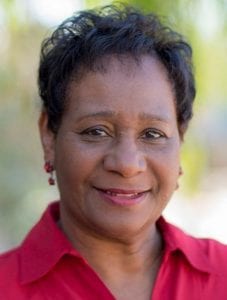Over the past several years major publishers have been moving away from physical or electronic books into online learning platforms and courseware, and from straight sales of standalone books to bundles, custom products and subscriptions. Traditional publishing contracts were developed at a time when a book was a discrete unit, sales could easily be tracked in those units, and revisions occurred on a predictable cycle. Publishers are trying in various ways to update and adapt their contracts to the new textbook landscape. In her 2023 TAA Conference session, presenter Brenda Ulrich, an attorney at Archstone Law Group, will explore the ways in which the contracts are changing, and what the implications are for authors.
The prelude: Preparing to write a scholarly textbook
Many think about writing a scholarly textbook years before actually picking up the pen to do so. That prelude is like musicians tuning up before a performance. It is an investment of time that is as critical to finishing a book as to beginning it. For a writer, the prelude is a time to organize notes and references. To draft and redraft a table of contents. To organize notes. To connect with potential editors. To investigate potential audiences and find colleagues who would consider adapting it in their teaching. The prelude contributes to the ease with which you can write the book and lays the foundation that there is an audience for it.
2023 TAA Council Elections – Cast Your Vote
Six candidates are running for four open positions on the TAA Council, the association’s governing board. Terms begin July 1, 2023.
Members received an email with a link to the ballot on February 21. To be eligible to vote, individuals must be members in good standing. If you are a TAA member and cannot vote electronically, contact Kim Pawlak at Kim.Pawlak@TAAonline.net or (507) 459-1363 to request a paper ballot. The deadline for voting is Friday, March 17.

“I would like to continue my support of TAA with service as the next Vice President/President-Elect, as this organization continues to invite new and ongoing members of the textbook and academic authors community to join with us for this mutually beneficial and rewarding purpose.” – Dione Taylor, Running for Vice President/President-Elect
Three principles for greater writing productivity and satisfaction
For our writing productivity and fulfillment, of course we need time management, self-discipline, and all the pomodoros (Cirillo, 2018) we can muster. Sometimes, though, as ardently as we apply these, they don’t seem to be enough. I’ve found three additional perspectives very helpful. These are “laws” that are described simply and eloquently by author, speaker, and spiritual and practical teacher Deepak Chopra (1994) in The Seven Spiritual Laws of Success.
For an equitable textbook, universal design for learning is a must
Universal design for learning (UDL) is an evidence-based framework that improves and optimizes teaching and learning for all people. UDL recognizes the diversity of student learners and leverages how humans learn to improve and optimize teaching and learning.
In their 2023 TAA Conference session, “For an Equitable Textbook, Universal Design for Learning is a Must,” Laura Frost, Professor of Chemistry and Associate Dean at Florida Gulf Coast University; and Shawn Nordell, Associate Director of Graduate Career Services at the University of Arizona, provide an overview of the UDL framework, some examples of how authors can work UDL principles into their textbook writing, and discuss among the participants how this framework can be further used to enhance the equitability and accessibility of their textbooks.
Thinking about writing an open access textbook? Learn from this case study
Christopher Iverson, and Dan Ehrenfeld, both Assistant Professors of English and Humanities at Farmingdale State College (SUNY), will share their experience authoring the Open Educational Resource, Processes, which compiled FSC writers’ work, in their 2023 TAA Conference session, “The Creation of an OER to Establish and Maintain a Writers’ Community at a Regional Public College.”
They will share highlights, outline key decisions and processes (such as the selection of a Creative Commons License that best supports their mission to share their work broadly), and discuss ways that composing OERs can build community on and between campuses. Processes will be published by SUNY Geneseo Press, and the experience of creating it opened opportunities for community building remotely.






